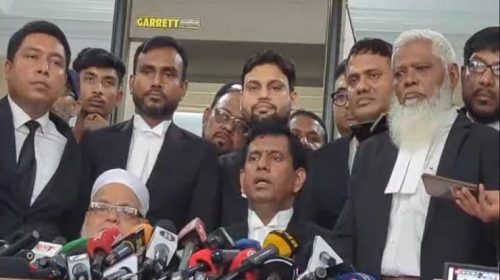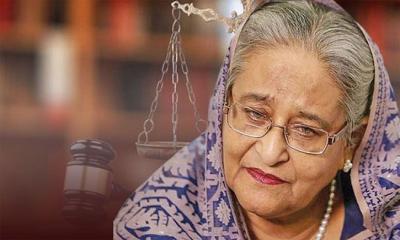The High Court has dismissed a writ petition that challenged the legality of several controversial recommendations made by the Women Reform Commission. The court stated that since the recommendations have not yet been implemented, the petition is premature.
On Monday (May 26), a High Court bench comprising Justice Fatema Najib and Justice Shikdar Mahmoodur Razi issued the order. The court observed that the recommendations are still at the proposal stage. If the government moves forward with their implementation in the future, the petitioner may then approach the court.
Advocate Rowshan Ali represented the petitioner during the hearing, while Advocate Fauzia Karim Feroz argued on behalf of the Women Reform Commission.
The hearing took place on May 19, and the court had reserved May 26 for its decision. Accordingly, the petition was dismissed today.
The writ was filed on May 5, seeking a directive to form an expert committee to review what the petitioner described as controversial and conflicting provisions of the “Women Reform Commission Report 2025.” The petitioner claimed that certain recommendations in the report contradict Islamic Shariah, the religious sentiments of the people, and the Constitution of Bangladesh.
Key objections raised in the petition included:
- Equal inheritance for men and women: Chapter 11 of the report proposes equal inheritance rights for men and women, which the petitioner argues is contrary to the Qur’an (Surah An-Nisa, 4:11).
- Ban on polygamy: The report recommends banning polygamy, which is permitted in Islamic law and protected under Article 41 of the Constitution, which guarantees freedom of religion.
- Support for “My Body, My Choice” slogan: The report is said to endorse this slogan without grounding it in Shariah principles, thereby allegedly exceeding moral boundaries.
- Recognition of sex work as a legal profession: The report recommends recognizing sex work as a legitimate profession, which the petitioner claims violates Islamic values and Articles 2(a) and 26 of the Constitution.
- Language around gender identity and transgender issues: The terminology used in the report regarding gender and transgender rights is described as conflicting with Shariah and traditional religious beliefs.
The petition named three ministries—Women and Children Affairs, Religious Affairs, and Law—as well as the Chairperson of the Women Reform Commission as respondents.
The High Court concluded that since the recommendations are not yet legally binding or implemented, judicial intervention at this stage is unwarranted. As such, the court dismissed the petition as premature.











